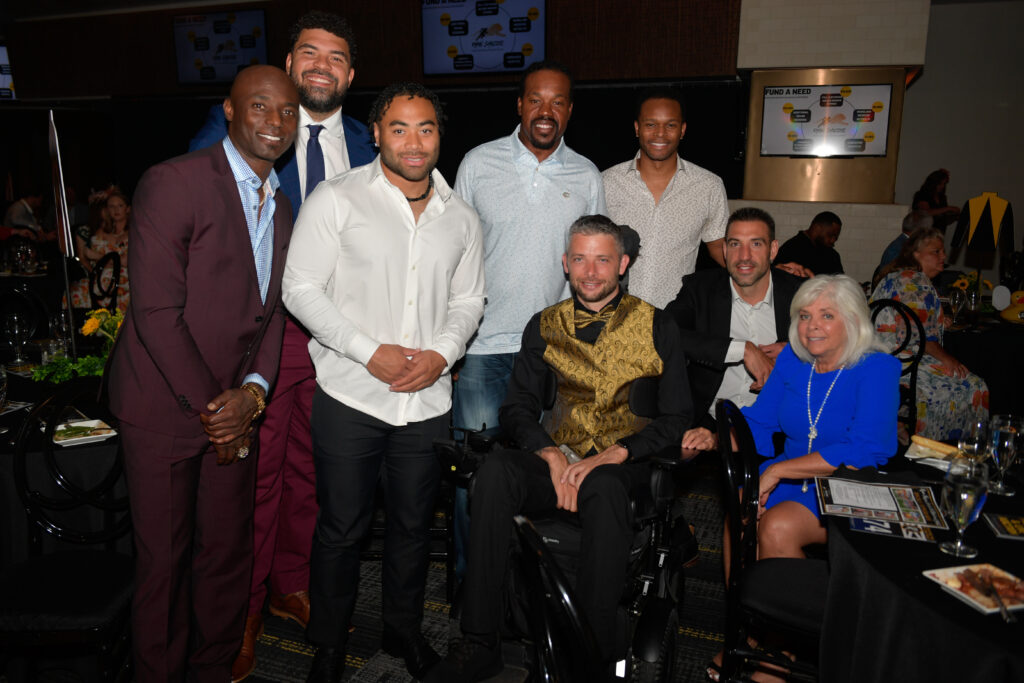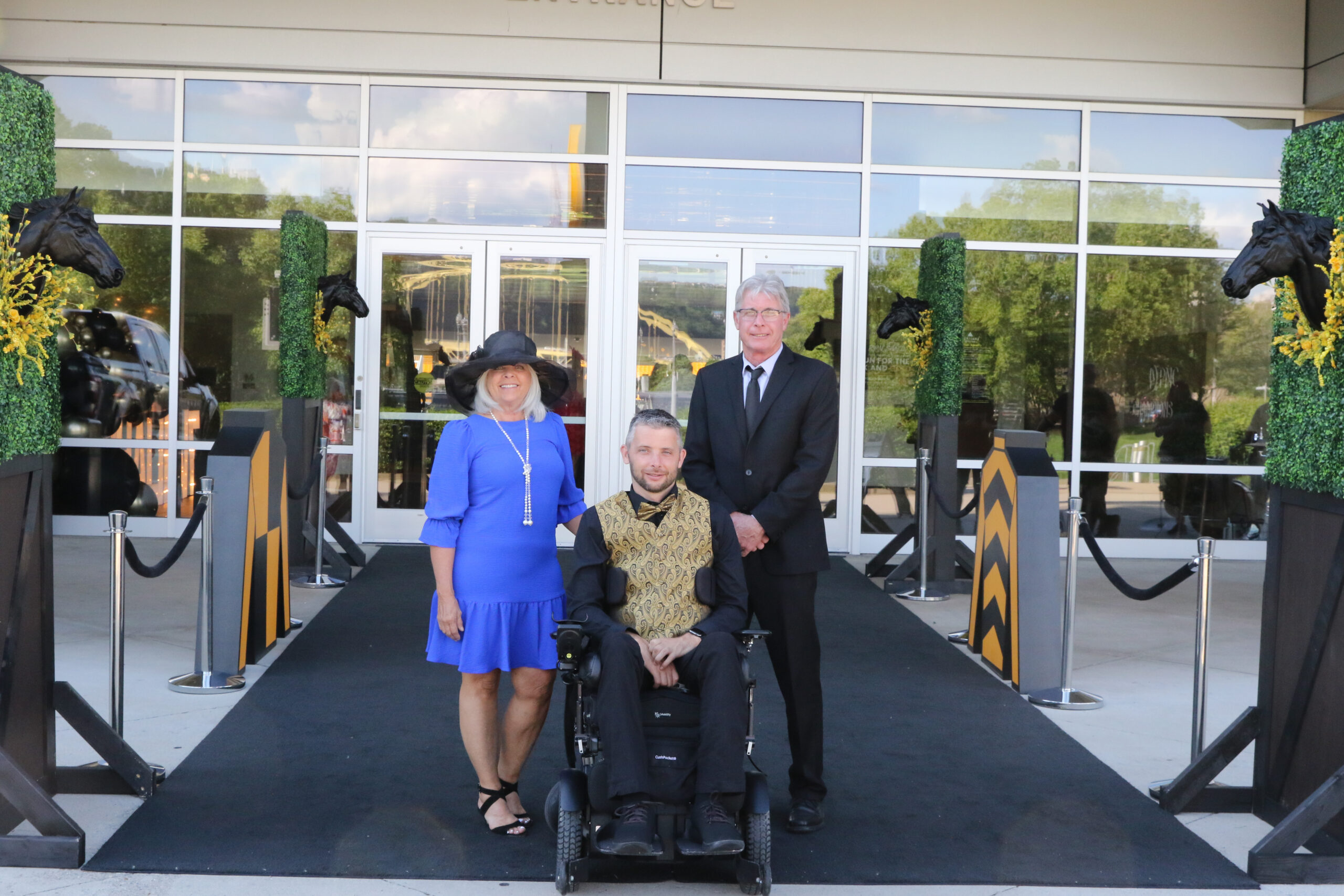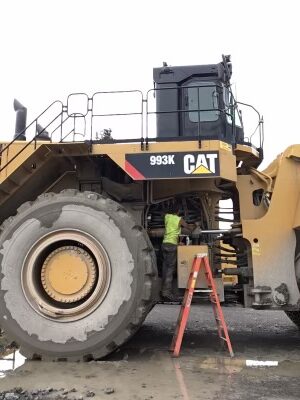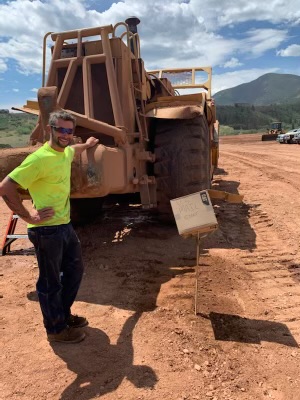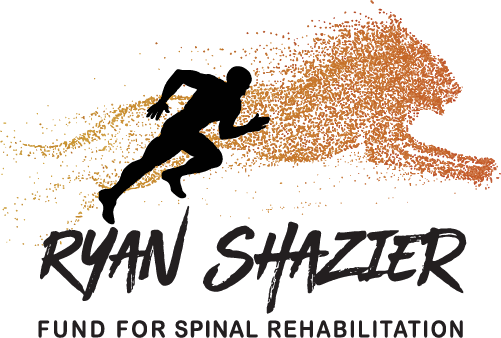by Cathy Cuff-Coffman
We’ve previously met Shane Heinle. Here’s how one “dirty jobber” found pride in his disability.
July is “Disability Pride” Month, which originated from the passage of the Americans With Disabilities Act in July 1990. It’s a Civil Rights law that prohibits discrimination against any person with a disability.
Yet, even though we as a country celebrate “Disability Pride,” it’s hard to let go of one’s “able-bodied” life and embrace the meaning of “Disability Pride” if one sustains a spinal cord injury (SCI) after having a successful career, especially a “Dirty Jobs” career.
Such is the case with a previous Shalieve story subject, Shane Heinle. (You can read about his love of his dirty job and outdoors there.)
Great “Dirty Job”
Before his spinal cord injury happened in October of 2020, Heinle was a field service technician for Caterpillar, and road and raced mountain bikes in his spare time.
“I hate to toot my own horn, but I was good at my job,” Heinle exclaims.
“I just…I loved it. I knew I loved it when I was doing it, and I miss it that much more,” he says wistfully.
Now, four years later, Heinle is dependent on a motorized wheelchair, learning to re-structure long days while trying to develop new skills that will carry him through the rest of his life.
“I’m 37 years old,” he says, shifting his weight in his chair. “I expect to live a long life.”
According to the National Spinal Cord Injury Statistical Center (NSCISC), only 12% of individuals with SCI return to their pre-injury jobs. This is a hidden statistic and one that might be masked by the need for SCI warriors to have continual healthcare interventions.
Healthcare Derailing
For instance, Heinle developed a fissure from prolonged sitting.
“I had that repaired surgically, but that was a year-and-a-half process to get that fixed,” he explains. During that time, he was in pain and exhausted many medical options. He theorizes that throwing a job into that morass at that time would be counterproductive.
Heinle explains: “It hurts on my tailbone, and I should be using my standing frame.” (A standing frame enables a person with paralysis below the waist to stand safely. It promotes bone density and circulation and can help any muscle activation occur).
However, using the frame requires the assistance of a caregiver (Heinle’s are part-time). “It pushes directly on my tailbone when I’m standing, making it exponentially worse,” he says. “So, I haven’t been able to use it for a couple of months.”
“And I have an FES bike that I also can’t use because of the way that it makes me sit; it just grinds on that tailbone area.”
It’s these kinds of ignominious situations that can deter disabled individuals from feeling a full sense of “Disability Pride.”
New Routines
“Often, I feel stranded or stuck because I’m in the middle of nowhere, rural PA, with no vehicle to drive and hard to find caregivers or help,” says Heinle. “So, I sit here and… I wonder what the hell I’m doing.”
Heinle has started to apply the tenets of his old work habits to his new reality.
“I’ve accepted that I’m disabled,” says Heinle. He still thinks about his old body and skills; daresay most individuals who experience disability later in life do. But he’s now applying his old habits to his new reality.
“I usually do a little workout in the morning, but I hate working out. It’s very boring to me!” says Heinle. “I like activities, but I hate working out.”
He’s delved into podcasts and started listening to books within the last year. “Reading a paper book is very clumsy for me,” Heinle says, alluding to his “SCI hands.”
Heinle likes listening to non-fiction, mostly biographies and autobiographies.
“But I just tackled my first fiction book a couple of weeks ago,” says Heinle. “It was pretty good, a Kurt Vonnegut book, Slaughterhouse-Five.”
In the evening, Heinle catches up with a friend and watches TV.
“It is a long day. And there’s a lot of space in between.”
Finding Disability Pride
“But I have to admit, the whole injury itself has changed me,” says Heinle.
“And I don’t want to say it’s taken my edge away, as much as it’s rounded it off a little bit.” Heinle says this proudly and realizes he does have pride in his disability.
Heinle is a nicely sarcastic man, never mean but witty and smart. “The systems that we have to deal with are so monotonous and bureaucratic, and in my opinion, they’re built to get you to quit,” says Heinle.
“And it pounds away at you,” he says. “But. Aha! I won’t let them beat me. It’s changed me as where I’m not as snarky as I want to be.”
He continues, “I can’t handle everything. I have to wait for the system to handle it.”
Finding Self-Reliance
Before his injury, Heinle did everything himself. “I would find a way to do it and get it done. If I needed more money, I would work more. If I needed something, I would get it,” he says. “Now, I can’t go to work more, and I can’t just get something because I don’t have the money to do it or the means to do it,” Heinle admits.
“I called it ‘Shaking the Money Tree!’”
Heinle also misses the “water cooler” talk from what he calls “The World of Dirt.” “That language is funny,” he quips. “Now, I have to be far more eloquent than I was in my previous life.”
“I mean, I used to use the word f*%) as a comma, you know? But now, that’s far less accepted in emails with board members,” he says. Yes, board members.
On-Boarding
Heinle’s transition to “Disability Pride” isn’t only in his language. He is now an active Board Member of The Ryan Shazier Fund for Spinal Rehabilitation.
Heinle laughs that his conversational language has to change, too. It’s not hard, he says. “Luckily, my moral compass was pounded into me through my youth, and I knew where to use good language and job site language,” he says. “So now I yearn for more opportunities to use job site language.”
Heinle continues. “Because I live with my parents and filter myself down to use in family language…for the most part,” he grins.
Heinle says the board appointment came as a shock to him. He was the Guest of Honor at the annual Run for the Black and Gold and sat at the head of the table for his first in-person board meeting.
“It sure felt special,” he says.
Joining Ranks
“If I can be useful to the (disability) community, then I will do what I can,” Heinle says.
His attitude now has gone from “What’s happened?” to “Acceptance” to “Pride” in what he can offer to the disability community.
“I just take every opportunity that comes to me and don’t turn them down,” Heinle says. “Otherwise, I’ll end up sitting at home doing nothing anyway. So, if something is presented to me, then I’m going to take it, almost no questions asked.”
Heinle’s newest “ask” came from a friend he hadn’t spoken to for years—a friend of a friend—who contacted him that morning. “She works at a hospital in Pittsburgh and asked me if I would work with them involving spinal cord injuries, and come speak to them in the fall,” Heinle relays.
He says she offered to get him more information, but he cut to the chase.
“I’m in,” he told her.
“There’s so much help needed in the spinal cord injury community. And so I’m just excited to be able to help.”
There’s Heinle’s Disability Pride.
